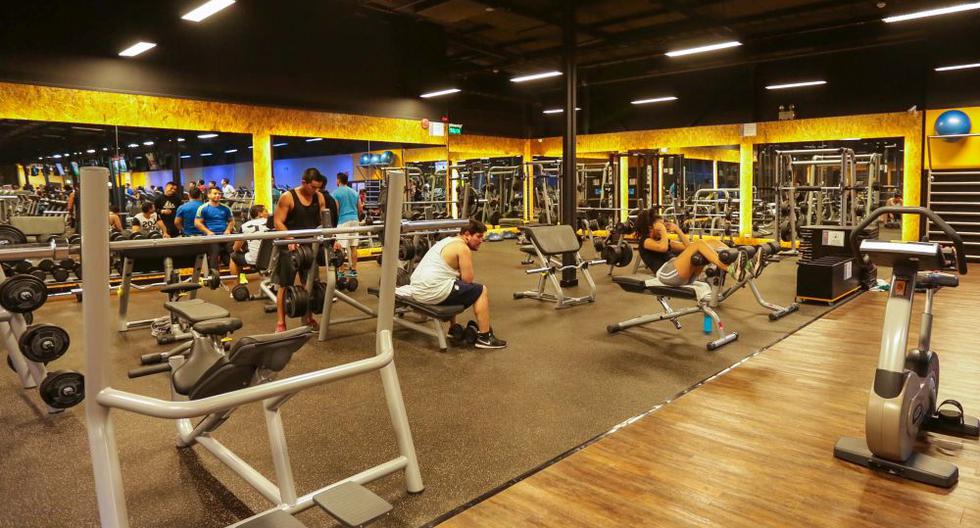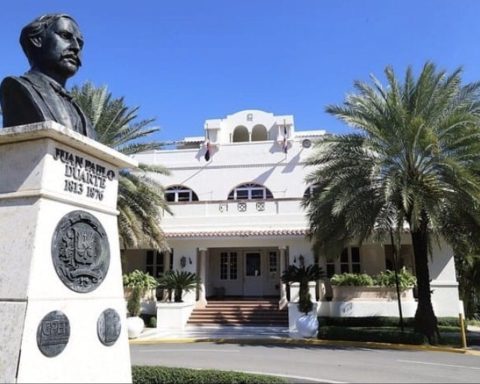The psychiatrist Carlos Enciso spoke about the role of social networks in people’s lives. In this regard, he regretted that they significantly affect mental health, and that many times they trigger depressive symptoms with a fatal end: suicide. On this point, he pointed out that currently the postings on the networks “can be alarm signals that must be taken into account”, and he assured that it is also necessary to analyze each case well.
In this context, the professional maintained that many times it is about people who have no one to communicate with or how to make known what they are experiencing or feeling, for what they see greater freedom to express themselves through that medium in search of help.
“Of course you have to take it into account. We usually haves signs of a person who is not feeling well, who is not happy, that she looks more down, that she starts saying things like ‘It’s not worth living’, ‘I can’t find myself’ (‘I do not feel happy’)
THE psychiatrist doctor regretted that social platforms greatly affect the lives of the majority, especially adolescents and young people as a result of the idealization that is presented through the publications of his contacts, making comparison with their lives, what leads them to feel they are not happy or who have nothing, when others seem to enjoy much more.
“That idealization affects them seriously. We see many cases where characters are idealized, lives, joy. If one is not physically attractive, with such clothes, traveling to such places, he feels like life is not right, ”she warned.
Negative effects of social networks
· Addiction: Some studies have shown that young people can become addicted to the use of social networks. It is estimated that it affects about 5% of adolescents and has been described as an addiction. more addictive than the consumption of alcohol and cigarettes.
On the other hand, the same studies have revealed that addiction to social networks can cause problems falling asleep, poor performance in academic performance, compulsive checking, that is, the need to be checking messages, notifications and being updated, which which is related to the phenomenon known as “fear of missing something”.
· Anxiety and depression: According to a study conducted, one in six young people will experience an anxiety disorder at some point in their lives. In addition, four out of five young people say that the use of social networks makes their feelings of anxiety worse. Likewise, seeing friends on vacation or enjoying nights out can make young people feel like they are missing out while others enjoy life. These feelings can promote a “compare” and “despair” effect.
· Body image: the use of social networks is highly associated with negative self-esteem and self-image. Body image “idealization” has been shown to have a detrimental impact on women’s self-esteem. A study found that 9 out of 10 adolescents say they are not satisfied with their body and that after spending a long time on Facebook they expressed the desire to change their appearance (face, hair, skin, etc.).
In accordance with the above, it is important to mention that the images shown on social networks can be unrealistic and cause young people to experience feelings of self-awareness such as low self-esteem, search for perfectionism, which could manifest with an anxiety disorder. .
Cyberbullying or cyber harassment: Bullying during childhood and adolescence is a prevailing risk factor in the mental health of young people and is the type of online harm that most afflicts young people (85% of those who have been victims report being upset by it). . Scientific evidence shows robust associations between cyberbullying and mental health, specifically in terms of suicide and self-harm.
positive effects
· Free expression and self-identity: They are important aspects of development in young people and adolescents since it is a stage in which they try to experience new things, different aspects of themselves and their identity.
Build and maintain relationships: Social networks are a useful tool for making and maintaining interpersonal relationships worldwide, with friends and family. Regarding the construction of communities or groups, it is also a positive element, since thoughts, tastes and interests of people similar to them are shared.
alarming figures
This year, so far only in the month of December, The National Police records 48 cases of suicide. The number The highest occurred on the 9th of this month with six cases of people who took their lives.
That’s why it’s important watch out for warning signs:
• Major mood swings
• Social withdrawal
• Express thoughts, feelings, or plans about ending life.
• Say phrases like “No one will miss me when I’m gone” or “I have no reason to live”
• Find ways to commit suicide
• Say goodbye to family and close friends
• Give away valuable possessions
RISK FACTOR’S
• Previous suicide attempts. • Mental health problems. • Harmful use of alcohol and other substances. • Loss of employment and/or economic or financial problems. • Presence of pain or chronic diseases. • History of suicide in the family and/or close environment. • Having suffered physical, psychological or sexual abuse. • People from marginalized or discriminated social groups.
Where and how to seek help
Mental health care is essential, therefore, the Ministry of Health recalls that the online directory is available, with the database of professionals, psychologists and psychiatrists from the different health regions of the country. Enter it HERE https://www.mspbs.gov.py/dependencias/portal/adjunto/1dfe54-DirectorioSaludMentalversionACTUALIZADOaDic2022.pdf
IF YOU NEED HELP:
-Mental Health Network at Hospital de Clínicas: adults should call (0992) 782-394; and for minors (0995) 683-050, from 8:00 a.m. to 10:00 a.m.
–Psychiatric Hospital: Scheduling for outpatient consultations (08:00 to 17:00): In person and by calling 0985 125 813/0984 794 264. For referral of emergency patients (24 hours): 0986 877 410.
–National Police: 911 system.


















